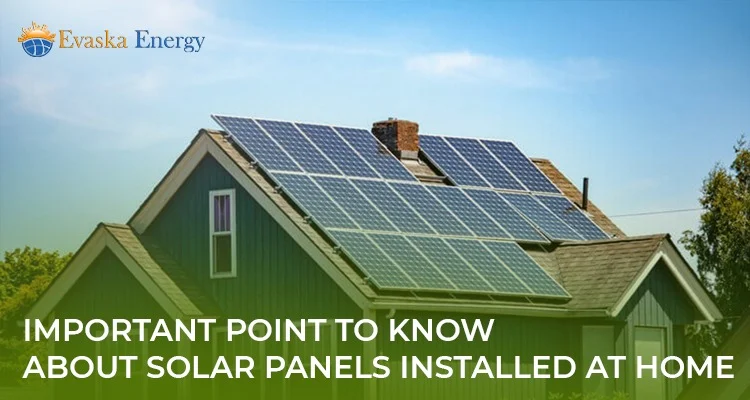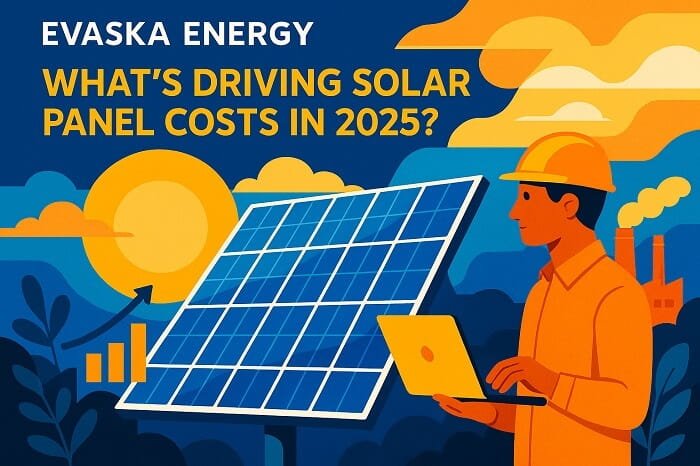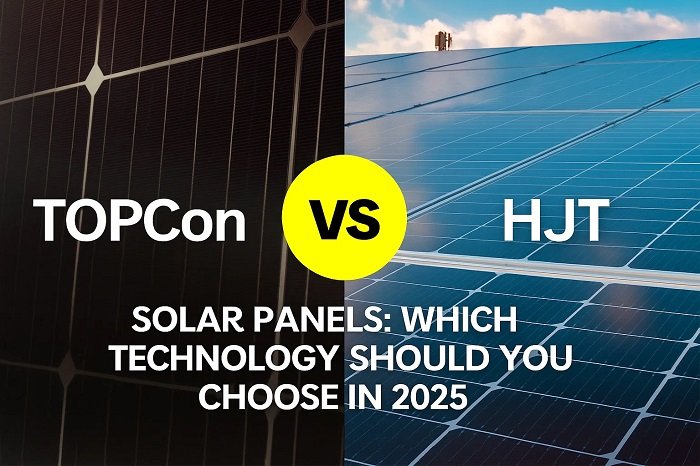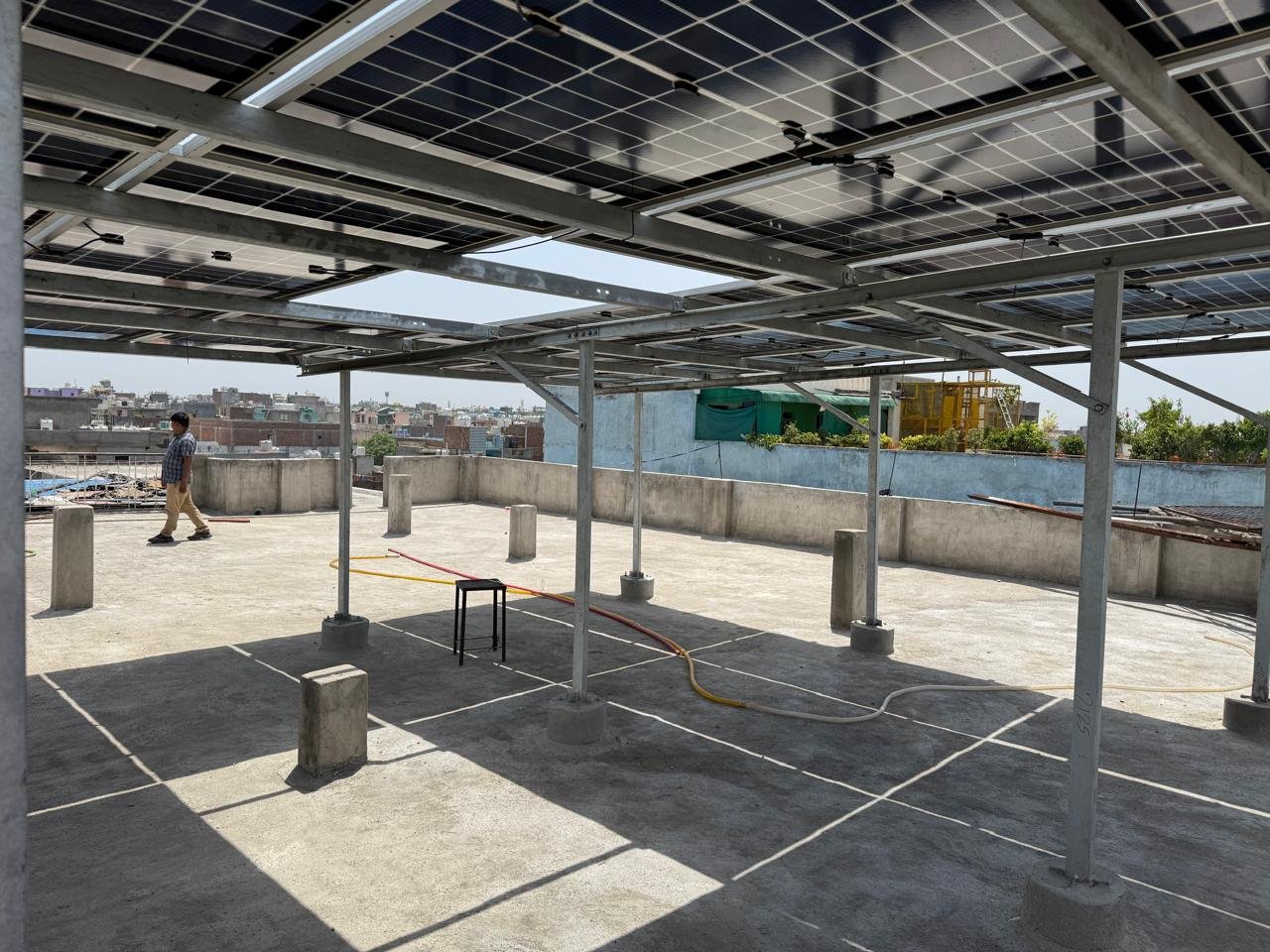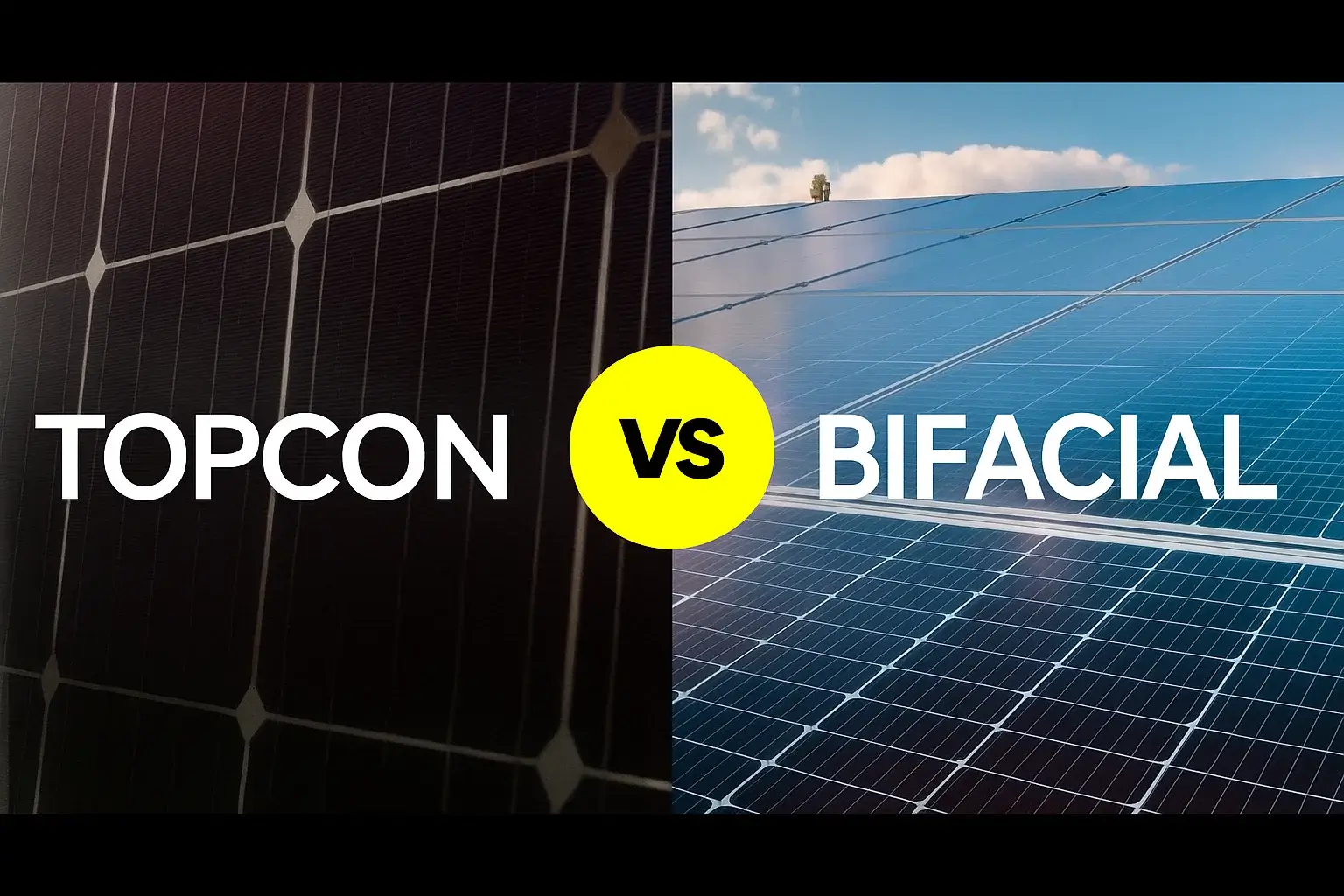Important point to know about solar panels installation at home
The demand for solar panels has increased over the past few years in India. With growing demand and an increase in the adoption of solar panel installation, we have witnessed many new technology changes coming into the market. The benefits of solar panels are plenty, and I will list down a few important ones:
- Save on your electricity bills up to 90%
- Store energy in batteries and use them during power outages
- Reduce carbon footprints
- Zero pollution
- Negligible maintenance
- Contribution to the environment
- Life of 25 years
- Equivalent to planting trees
As we have discussed, the benefits of installing solar panels are many. What we need to check are the critical points. To consider before installing solar panels at home:
- Area available on the terrace/roof: An approximate shadow-free area of 100 sq. ft is required to install 1 KWp solar panels. The first step once you decide to adopt solar energy, you need to get your roof survey done by any solar company. After that, you will be able to analyze the maximum area available for solar plant installation.
- Sanctioned load mentioned in your electricity bill: We cannot exceed our sanctioned load for solar plant installation. It is always mentioned in the electricity bill as sanctioned load or contract demand. The maximum one can install solar panels is according to that. With the help of sanctioned load, we can predict the premises’ average consumption or maximum consumption.
- Monthly electricity unit consumption: Understanding this is crucial; we might install too big a solar plant if we don’t calculate the monthly or yearly electricity consumption. The solar plant capacity shall be designed and installed as per the house, workplace, or factory requirements.
-
Need batteries: The requirement of batteries is there in such cases where there are a lot of power outages. The energy is stored in batteries and can be used later when there is no light. The size of batteries needs to be decided upon the backup load.
-
Capacity of solar plant: To decide on the solar plant capacity, we need to understand the available are on the roof, monthly electricity unit consumption, and most importantly, the sanctioned load of the premises. The running and peak loads need to be understood before installing solar panels. After all the study has been conducted, we can develop an appropriate solar system size.
-
Net Metering Applicable: In India, maximum states are currently offering net metering benefits to the consumers installing solar panels on their premises. With this benefit, the customer will be able to save maximum on the electricity bills. Net metering allows the user to export the energy to the grid. Net metering was introduced in India to boost and speed up solar adoption.
-
Electricity bill zero: Making your electricity bill zero is only possible in electricity unit consumption. The electricity bill also mentions a few fixed charges, the local Discom charges. The fixed costs being taken are very minimal and won’t affect our monthly savings from solar. Solar panels are the right thing if you plan to minimize your electricity bill expenses. The savings on electricity bills can be made up to 90%, which brings down the payback period below five years.
-
Cost of solar plant installation: Solar plant cost depends on the type of solar panels and inverter installed. The average price for an ON grid solar plant is Rs. 60,000 per KWp. It completely varies from site to site and location to location. If batteries are being installed in them, it is more expensive. The cost of solar batteries is added to this. There is only an upfront cost to be made; later on, it will give you benefits for 25 years. Also, this upfront cost is recovered within five years period.
-
Life of solar panels: Solar panels are designed and manufactured to sustain a term period of 25 years. The performance warranty given by solar panel manufacturers is 25 years. Looking at this extended period, it is proven that they have a life of more than 25 to 30 years. The primary component used in making solar panels is the silicone cells, which have an infinite life. The first solar panel installed has been working fine for more than 50 years.
-
Maintenance of solar power plant: The main theory behind solar panels working is that there is no such movement in them for generating power. Once mounted on the solar structure, it is constantly placed to generate power. The only maintenance it requires is regular cleaning of solar panels with water. It is advisable to clean the solar panels every 15 days, depending on your locality’s dust collection. Apart from this, there is no such maintenance for the solar panels.
-
Relocate the solar panels: Well, this is an activity to be performed entirely under expert supervision. Once the installation has been done, it only needs to be relocated in emergencies. The solar panels can be easily relocated. Under proper guidance and supervision, it needs to be done to avoid breakage or damage.
Solar system installation in the residential segment has been booming since the benefits and advantages are too many. These points discussed above will clear your doubts before planning a solar panel system for your home. Once you understand the complete working of the solar system, you are ready to go solar. After adopting solar energy, your dependence on the traditional sources of electricity will reduce. You will start contributing to the environment daily with the most effective form of renewable energy.



